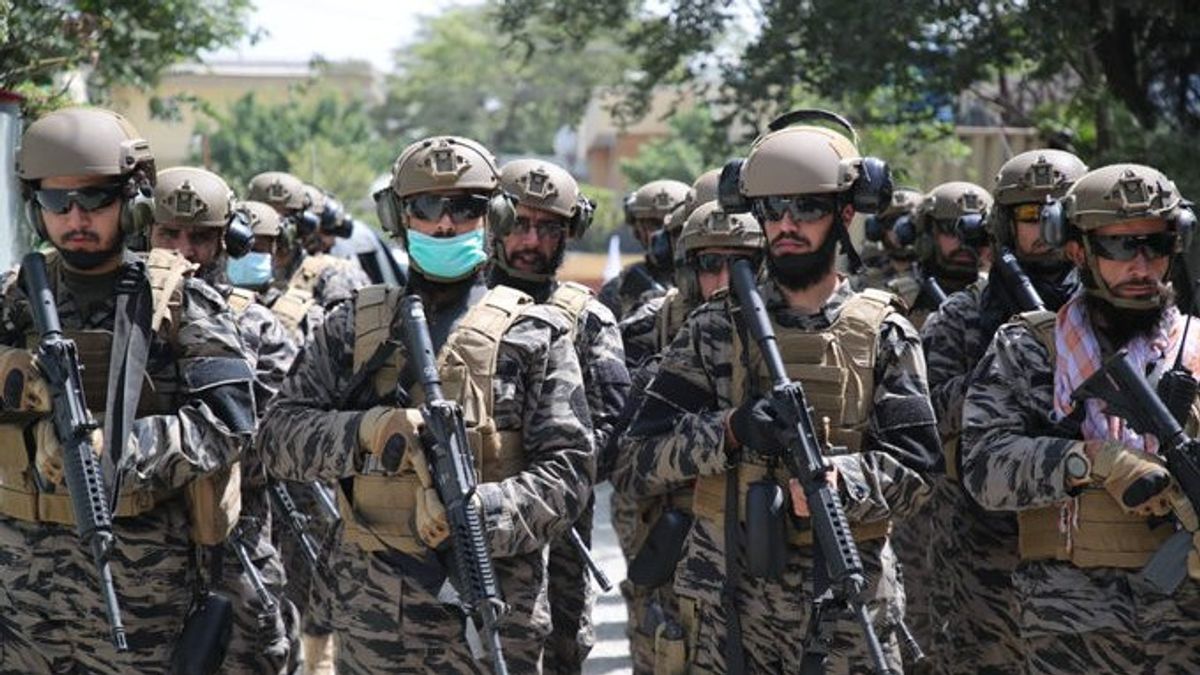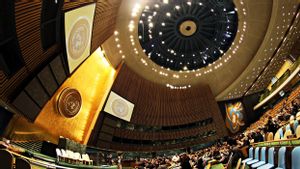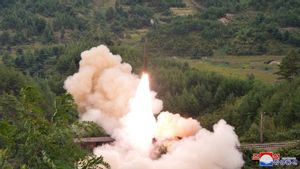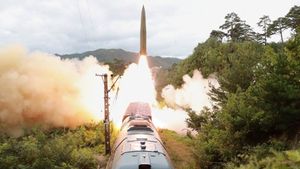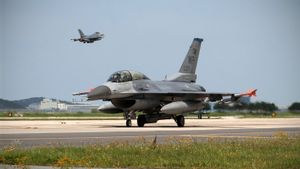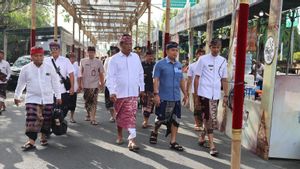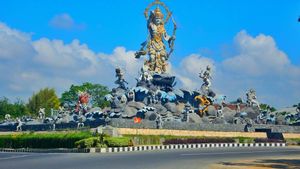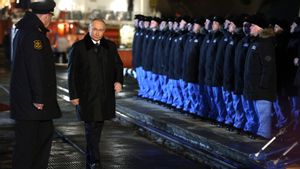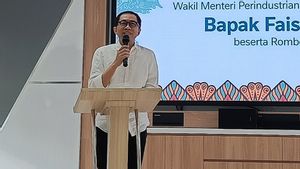JAKARTA - The Taliban's claim to guarantee security in Afghanistan since they took control of Kabul on August 15 has been tarnished by a series of attacks carried out by Islamic State affiliates in recent weeks.
In the six weeks since the Taliban came to power, there have been reports of ISIS in Khorasan Province, ISKP (ISIS-K), carrying out attacks and activities in the cities of Kabul, Jalalabad, and Mazar-i-Sharif.
On the night of August 26, just 11 days after the takeover of the Taliban, ISKP claimed responsibility for the bombing at Kabul's Hamid Karzai International Airport that killed more than 180 people and injured hundreds more.
Several attacks have been reported in Jalalabad City, the capital of Nangarhar Province, and one of ISKP's most common targets. Recent attacks, including IED explosions, killed civilians and claimed Taliban fighters.
In a Telegram message, ISKP claimed to have killed up to 35 Taliban fighters in Jalalabad. The Taliban have denied the tally. Each of these instances has been met with harsh words from the Taliban, who have continued to promise to eradicate forces loyal to ISIL.
Deputy Information and Culture Minister Zabihullah Mujahid told Al Jazeera the Taliban are actively hunting for those who sow chaos in the country.

The Taliban blamed the United States for failing to prevent the airport attack, saying it "happened in an area where US forces are responsible for security".
But in the immediate aftermath of the bombing, the families of the victims directed their anger at the Taliban, who they saw failed to prevent one of the deadliest attacks in 20 years.
"It's all your fault, you all did this. You didn't secure anything," a relative of one of the victims can be heard shouting to Taliban forces at an Italian-run makeshift hospital in Kabul, citing Al Jazeera September 27.
Relatives of the victims who spoke to Al Jazeera also questioned whether the Taliban could confront a group known to have carried out increasingly bold and daring attacks. The attacks showed no signs of stopping.
While the Taliban have taken districts from ISKP in the past, eliminating this longtime foe is proving more difficult than the group will ever undertake. The Taliban launched a crackdown on ISKP members, reportedly detaining at least 80 fighters in Nangarhar, the ISIS stronghold of Khorasan.
The group also claims to have killed Ziya ul-Haq, also known as Abu Omar Khorasani, a former ISKP leader, in Kabul's notorious Pul-e-Charkhi prison.
They are also said to have killed Farooq Bengalzai, an ISIL leader from Pakistan who was reportedly killed while traveling in southwestern Afghanistan.
On August 28, the Taliban were accused of arresting Abu Obaidullah Mutavice, a well-known Salafist cleric, in the capital Kabul. A week later, Mutawali was found dead.
The Taliban denied involvement in Mutavice's death, but that did little to assuage suspicions. Continuing that doubt is a fact, in the weeks following Mutavice's assassination, the Taliban had also closed more than three dozen Salafi mosques in 16 different provinces.

There are concerns that the Taliban are borrowing from the playbook of the former Afghan government, which is accused of unlawful detention, extrajudicial killings, and using labels such as 'Taliban, ISKP, and Al-Qaeda' to pursue unwanted elements without providing evidence.
Wesley Morgan, a writer, and journalist who has reported extensively on the US war in Afghanistan said there is a fear the Taliban could label various groups as Daesh (ISIL) which the US and Kabul rulers before them did not.
The Taliban, Morgan said, have another pressing fear that should prompt them to act decisively against ISIS forces, defections.
"Taliban leadership doesn't want disgruntled or rogue fighters to defect in hopes of seeing action with ISIL," Morgan said.
There is a serious historical precedent for this fear. One of the first leaders of ISKP forces in the southwestern provinces of Helmand and Farah was Mullah Abdul Rauf Khadem.
Prior to his 2014 defection, Khadem had served in the Taliban government in the 1990s and as part of their 20-year insurgency against the US occupation. Likewise, several top Pakistani Taliban commanders pledged allegiance to ISIL in 2015.
Morgan said defeating the Taliban's indisputable foe would prove far more attractive to the fighters than trying to sever ties with Al-Qaeda forces still in Afghanistan.
"Targeting al-Qaeda can anger some of their bases, but defeating ISIL-K is an easy victory," he said.
Despite the Taliban's claims of a unified group, residents in major cities across the country have come face to face with rogue Taliban fighters, who have behaved with hostility and aggression that appear to renege on promises of a 'general amnesty' espoused by their leadership.

Acting Defense Minister Mullah Mohammad Yaqoob specifically addressed this issue in a recent audio message, in which he said, "There are some bad and corrupt people who want to join us. To serve their own interests or to defame us and make us looks bad."
Yaqoob said any rogue elements between the ranks would be dealt with. However, for members of the Taliban who still yearn for fighting and aggression, ISIL, a much-feared armed group known among Afghans for its brutality and violence, may prove an attractive alternative.
SEE ALSO:
In addition, Morgan cited the Taliban's interest in defeating ISIS-K or ISIS Khorasan forces, gaining international recognition.
When the Trump administration signed a peace deal with the Taliban in February 2020, it was with assurances that the Taliban would cut ties with other armed groups, such as affiliates of Al-Qaeda and ISIL, not allow other armed groups to use Afghan soil to target the US or its allies.
Since taking over Kabul, no foreign government has recognized them as the government of Afghanistan, including longtime allies such as Islamabad and Tehran. In addition, the Taliban also need to restore Afghanistan's slumped economy, plus the severance of ties by global financial institutions.
Defeating ISKP, Morgan said, was in the Taliban's interest and it would be a clear indication that the Taliban also believe in "counterterrorism."
"Simply put, this is a way to build international goodwill," Morgan said.
The English, Chinese, Japanese, Arabic, and French versions are automatically generated by the AI. So there may still be inaccuracies in translating, please always see Indonesian as our main language. (system supported by DigitalSiber.id)
